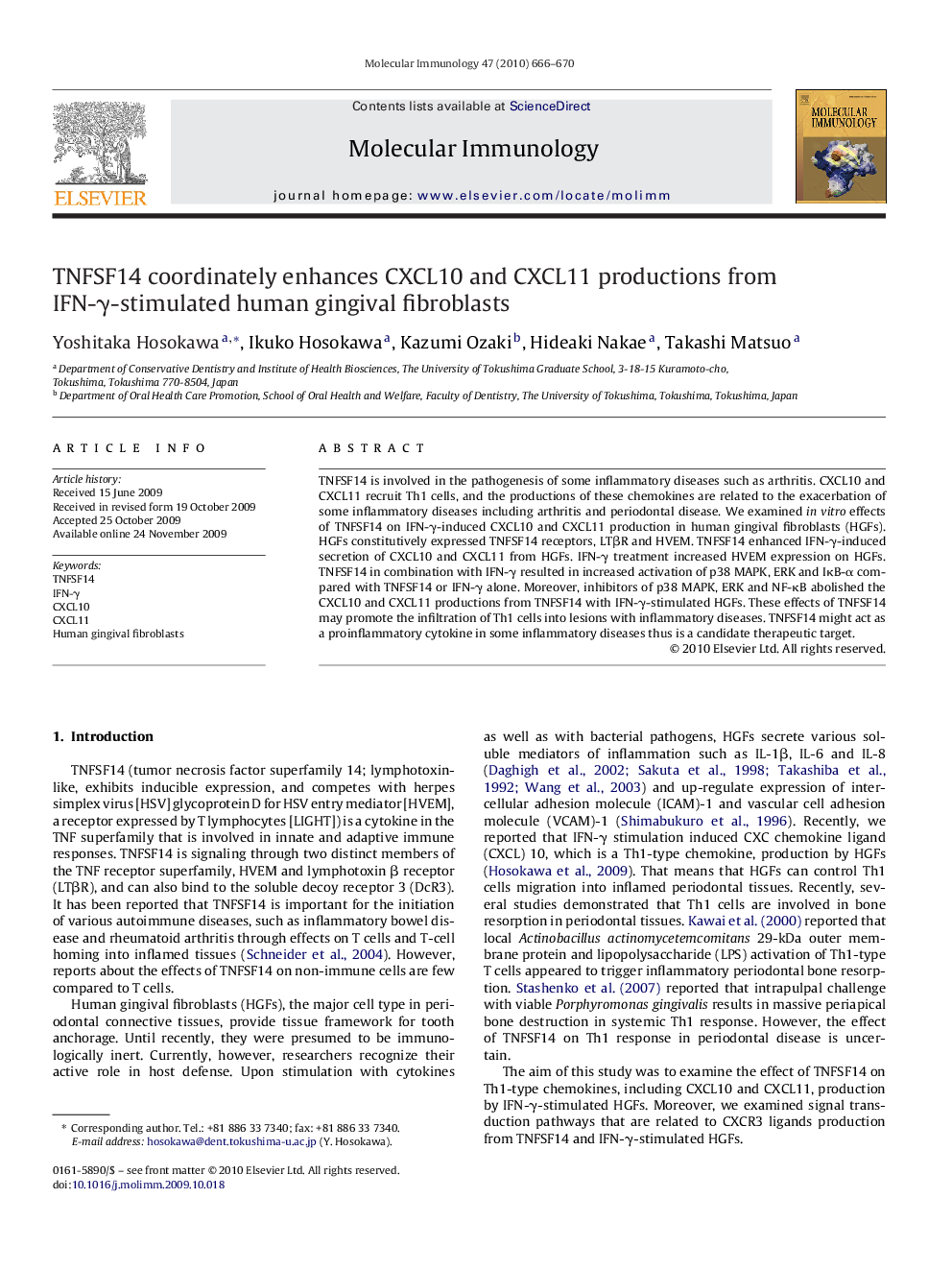| Article ID | Journal | Published Year | Pages | File Type |
|---|---|---|---|---|
| 2831810 | Molecular Immunology | 2010 | 5 Pages |
TNFSF14 is involved in the pathogenesis of some inflammatory diseases such as arthritis. CXCL10 and CXCL11 recruit Th1 cells, and the productions of these chemokines are related to the exacerbation of some inflammatory diseases including arthritis and periodontal disease. We examined in vitro effects of TNFSF14 on IFN-γ-induced CXCL10 and CXCL11 production in human gingival fibroblasts (HGFs). HGFs constitutively expressed TNFSF14 receptors, LTβR and HVEM. TNFSF14 enhanced IFN-γ-induced secretion of CXCL10 and CXCL11 from HGFs. IFN-γ treatment increased HVEM expression on HGFs. TNFSF14 in combination with IFN-γ resulted in increased activation of p38 MAPK, ERK and IκB-α compared with TNFSF14 or IFN-γ alone. Moreover, inhibitors of p38 MAPK, ERK and NF-κB abolished the CXCL10 and CXCL11 productions from TNFSF14 with IFN-γ-stimulated HGFs. These effects of TNFSF14 may promote the infiltration of Th1 cells into lesions with inflammatory diseases. TNFSF14 might act as a proinflammatory cytokine in some inflammatory diseases thus is a candidate therapeutic target.
